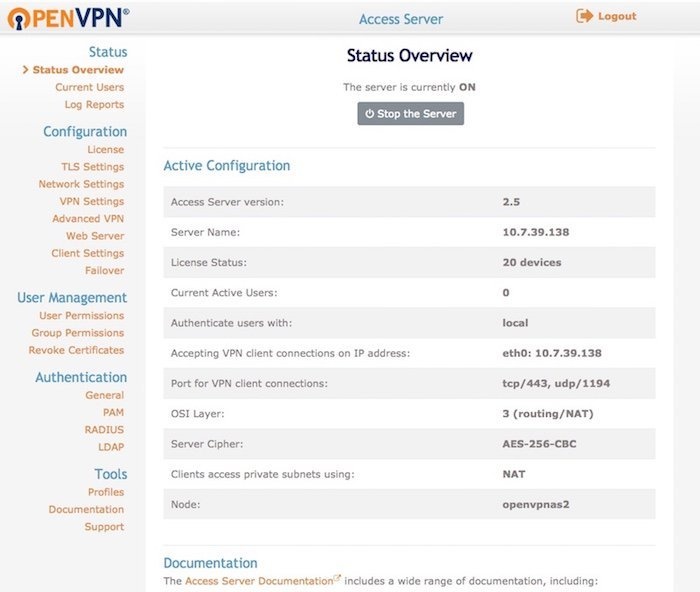 OpenVPN is een robuuste en gemakkelijk in te stellen opensource-vpn-daemon waarmee verschillende private networks aan elkaar geknoopt kunnen worden door middel van een encrypted tunnel via internet. Voor de beveiliging wordt gebruikgemaakt van de OpenSSL-library, waarmee alle encryptie, authenticatie en certificatie kunnen worden afgehandeld. De ontwikkelaars hebben versie 2.4.9 uitgebracht, met de volgende veranderingen:
OpenVPN is een robuuste en gemakkelijk in te stellen opensource-vpn-daemon waarmee verschillende private networks aan elkaar geknoopt kunnen worden door middel van een encrypted tunnel via internet. Voor de beveiliging wordt gebruikgemaakt van de OpenSSL-library, waarmee alle encryptie, authenticatie en certificatie kunnen worden afgehandeld. De ontwikkelaars hebben versie 2.4.9 uitgebracht, met de volgende veranderingen:
New featuresUser visible changes
- Allow unicode search string in --cryptoapicert option (Windows)
Bug fixes
- Skip expired certificates in Windows certificate store (Windows) (trac #966)
- OpenSSL: Fix --crl-verify not loading multiple CRLs in one file (trac #623)
- When using "--auth-user-pass file" with just a username and no password in the file, OpenVPN now queries the management interface (if active) for the credentials. Previously it would query the console for the password, and fail if no console available (normal case on Windows) (trac #757)
- Swap the order of checks for validating interactive service user (Windows: check config location before querying domain controller for group membership, which can be slow)
- fix condition where a client's session could "float" to a new IP address that is not authorized ("fix illegal client float").
- This can be used to disrupt service to a freshly connected client (no session keys negotiated yet). It can not be used to inject or steal VPN traffic. CVE-2020-11810, trac #1272).
- fix combination of async push (deferred auth) and NCP (trac #1259)
- Fix OpenSSL 1.1.1 not using auto elliptic curve selection (trac #1228)
- Fix OpenSSL error stack handling of tls_ctx_add_extra_certs
- mbedTLS: Make sure TLS session survives move (trac #880)
- Fix OpenSSL private key passphrase notices
- Fix building with --enable-async-push in FreeBSD (trac #1256)
- Fix broken fragmentation logic when using NCP (trac #1140)


:fill(white):strip_exif()/i/2003549196.jpeg?f=thumbmedium)